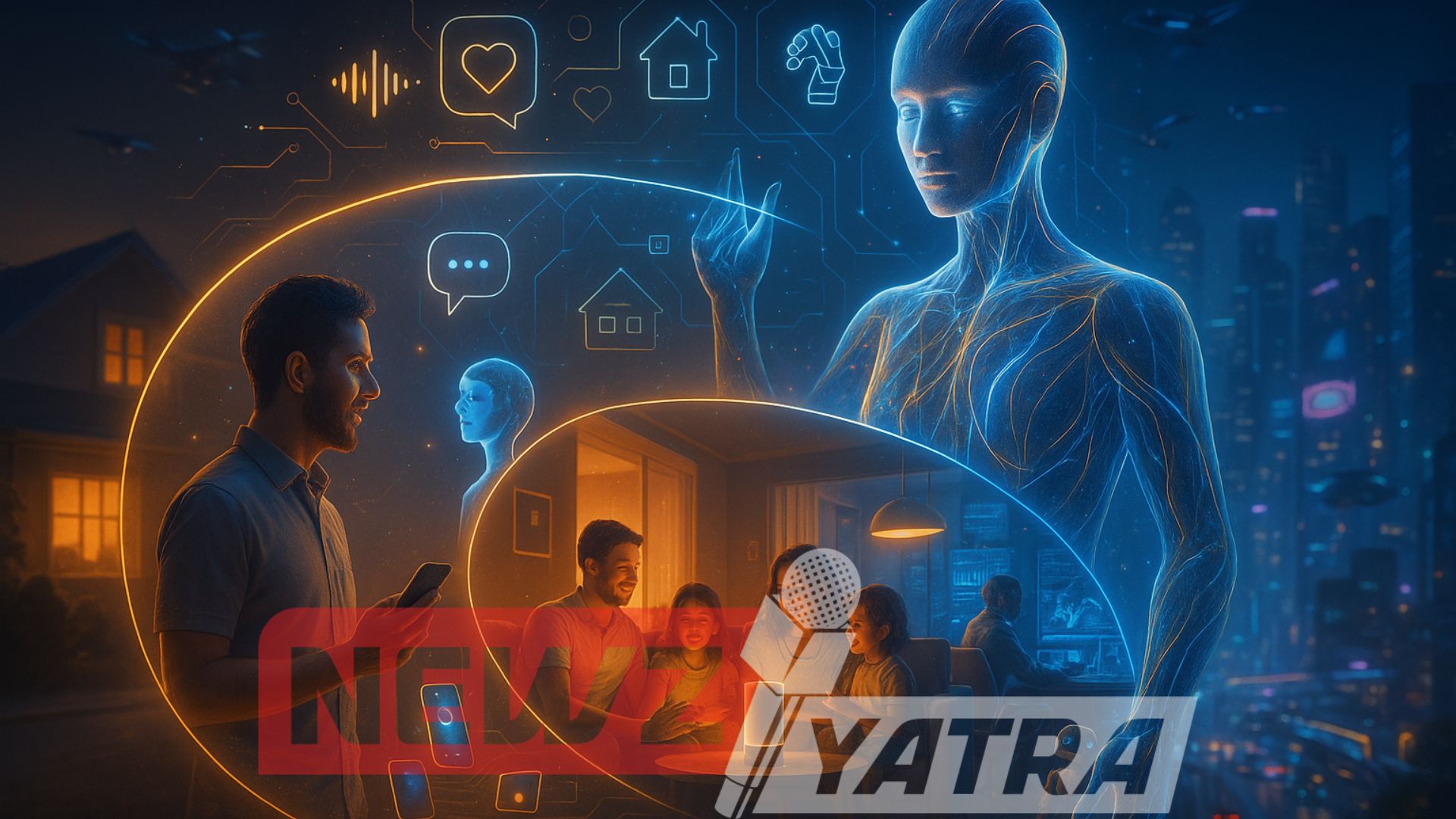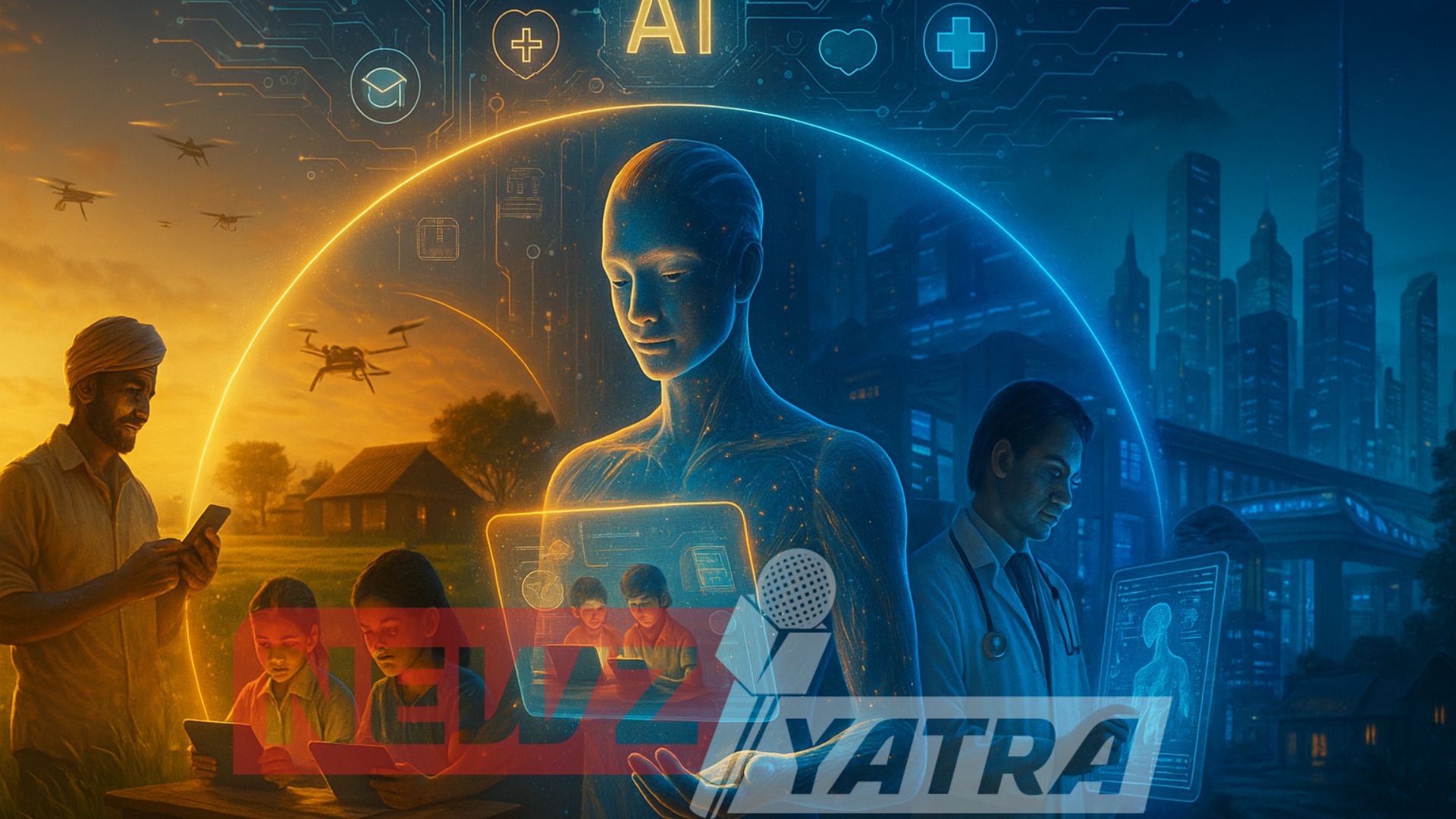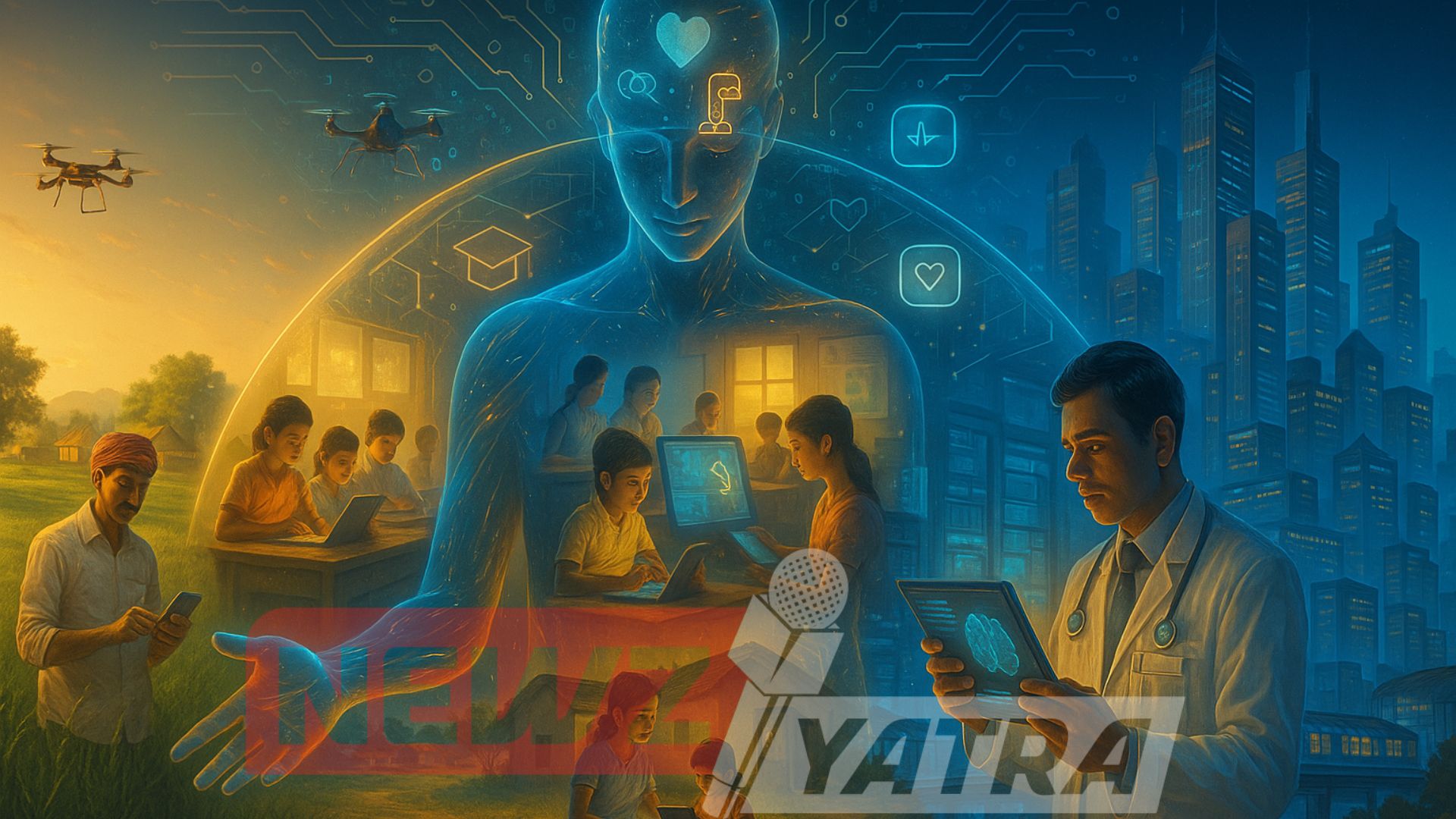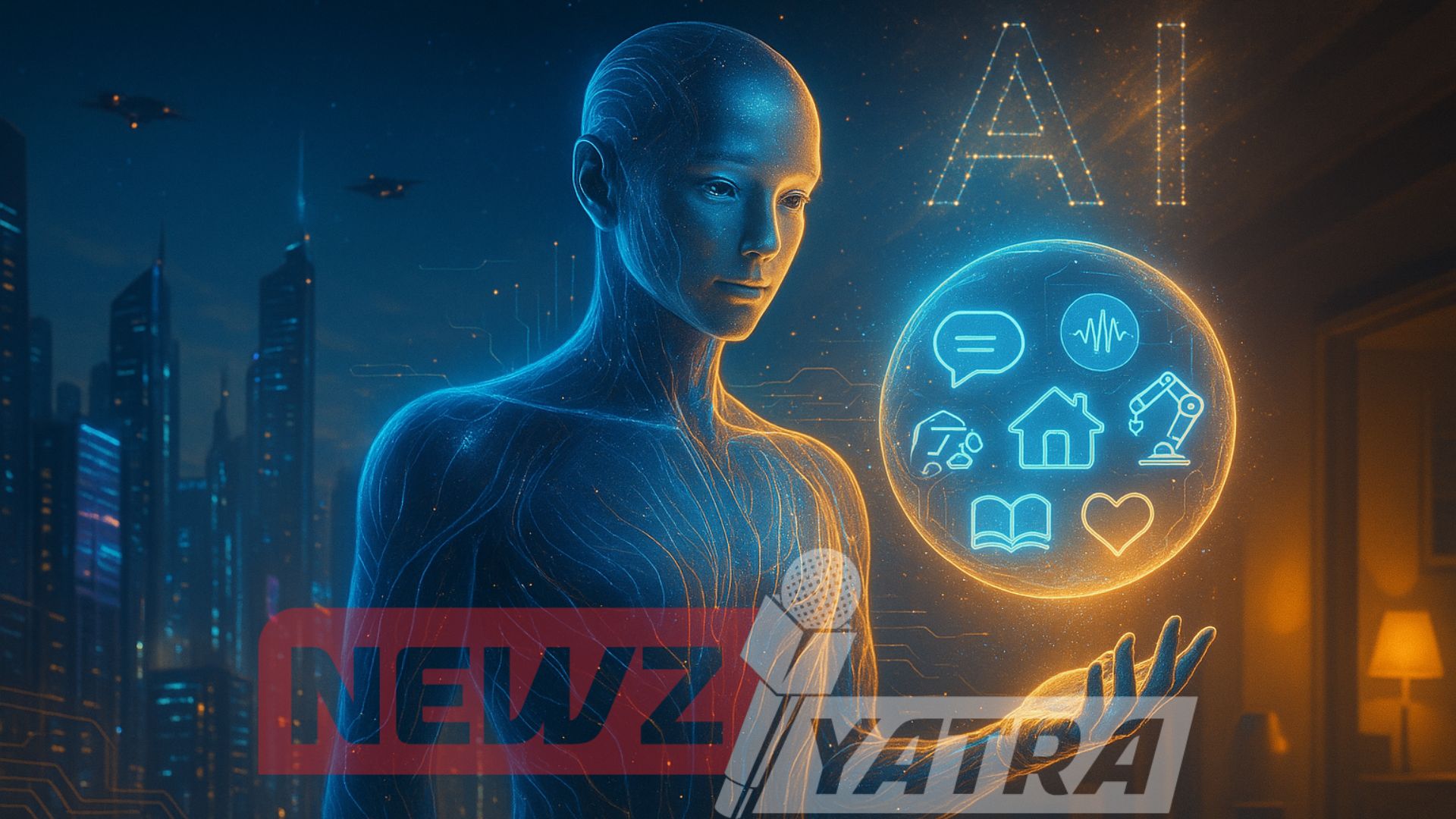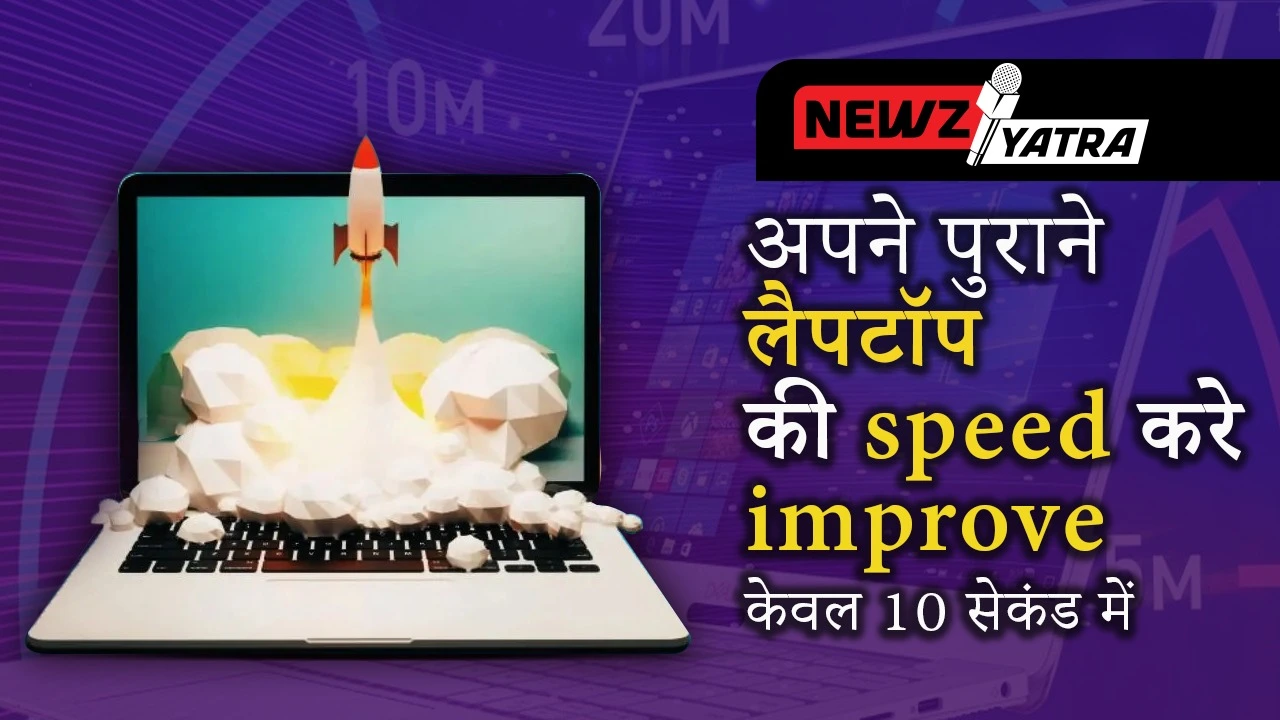How AI Is Changing India: Jobs, Education, and Everyday Life!
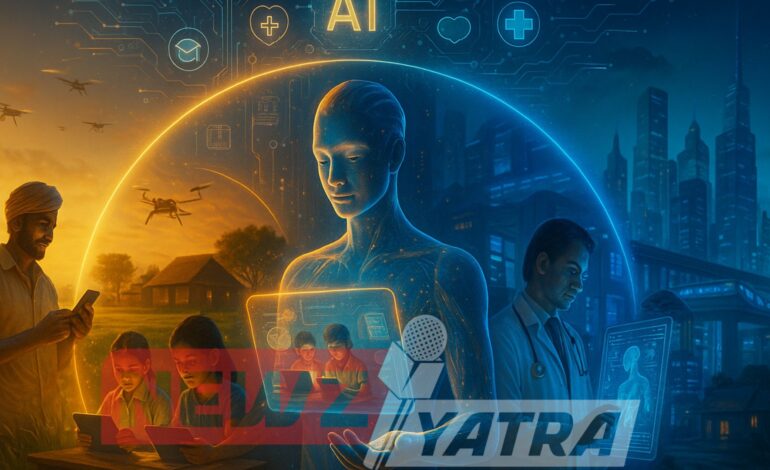
Once a futuristic fantasy, Artificial Intelligence is now woven into the very fabric of our daily lives — and in India, its presence is becoming impossible to ignore.
From bustling metros to remote villages, AI is no longer just a buzzword. It’s helping farmers predict the weather, guiding students through complex lessons, assisting doctors in diagnosis, and even powering the apps we use without a second thought. (Impact of AI on jobs in India)
India — with its rich diversity, booming digital ecosystem, and a youth-driven population hungry for innovation — stands at a unique crossroads. We’re not just witnessing the AI revolution; we’re living it.
So how exactly is AI reshaping the way Indians work, learn, and live? Let’s take a closer look.
India Meets AI: How Technology Is Changing Work, Education, and Daily Life (Impact of AI on jobs in India)
1. AI and Jobs: A New Work Culture Emerging (Impact of AI on jobs in India)
One of the first questions on everyone’s mind is: “Will AI take away our jobs?”
The truth? It’s not a yes or no answer.
Sure, AI is taking over routine, repetitive tasks — like data entry, customer support, or scheduling. But while some jobs fade, new ones are being born. Roles like:
- AI trainers who help machines understand how we think and speak.
- Prompt engineers who fine-tune the way AI answers questions.
- Ethics experts, data scientists, and robot engineers designing the future.
Across India — from tech startups in Bengaluru to IT giants in Hyderabad — these new careers are growing fast. Government platforms like the National AI Portal and Digital India are also stepping in to skill up the workforce.
In simple words:
AI isn’t taking jobs away. It’s changing them — and opening doors to exciting new ones. In the future, humans and AI won’t compete; they’ll collaborate.
2. AI and Education: Learning Gets Personal (Impact of AI on jobs in India)
Walk into a modern Indian classroom — or even a village home with a smartphone — and you’ll see AI changing how we learn.
Students today are using AI-powered apps that adjust to how they learn best. Whether it’s solving tricky math sums, practicing spoken English, or revising for NEET or JEE — platforms like Byju’s, Khan Academy, and even Google Lens are turning learning into a personalized experience.
Teachers are also getting support. AI can now take attendance, check homework, or even suggest lesson plans, so educators can focus more on real teaching.
Even more powerful? AI is breaking down barriers. A student in a remote part of Odisha can now learn chemistry in their local language — thanks to AI-driven translation and voice tools.
The result? Smarter learning for everyone, no matter where they live.
3. AI in Daily Life: From Homes to Hospitals (Impact of AI on jobs in India)
AI isn’t just in labs or apps — it’s already living in our daily routines, often without us even noticing.
- In phones: We ask Siri, Alexa, or Google to set alarms, play music, or tell us the weather.
- In hospitals: AI is helping doctors detect diseases like cancer, TB, or eye disorders faster than ever.
- On farms: Farmers use AI to get alerts about weather, pests, or crop prices, helping them make better decisions.
- In cities: Traffic lights in cities like Delhi and Bengaluru are powered by AI, adjusting in real time to reduce jams.
From smart homes that turn off the lights automatically, to fitness watches tracking your health — AI is everywhere, quietly making life simpler, safer, and smarter.
4. Challenges We Can’t Ignore (Impact of AI on jobs in India)
As powerful as AI is, India faces some serious questions:
- Who controls your data? With AI collecting so much information, privacy becomes a huge concern.
- Can everyone benefit? There’s a digital gap between urban and rural India — and AI must not widen it.
- Are we ready for the new skills? Workers across all sectors need to learn, adapt, and grow alongside technology.
India’s AI future must be human-first — one that protects rights, promotes fairness, and brings opportunity to all.
5. The Road Ahead: AI for All (Impact of AI on jobs in India)
India isn’t just following the AI wave — it’s helping lead it.
With the largest youth population in the world, a strong IT backbone, and a rising culture of innovation, India has the chance to build an AI model for the world: inclusive, ethical, and homegrown.
Government programs like IndiaAI, global tech partnerships, and cutting-edge AI research at IITs and NITs are all pointing in one direction — a future where AI works for every Indian, not just the privileged few.
Can AI Understand Indian Emotions? Exploring Cultural Sensitivity in Technology (Impact of AI on jobs in India)
As AI tools like ChatGPT and voice assistants become more common in India, one important question arises — can these systems truly understand how Indians feel? Emotions in India are often expressed in unique ways, deeply tied to language, culture, and context. Unlike in many Western countries where emotions are shown more directly, Indian expressions are often layered, subtle, and influenced by tradition and social norms. (Impact of AI on jobs in India)
For example, a simple “hmm” can mean agreement, doubt, or even disagreement, depending on tone and situation. A smile might not always show happiness — sometimes it’s just politeness or hesitation. These small but important cues are hard for AI to pick up, especially if it’s trained mostly on Western data.
Right now, most AI tools are built using information from English-speaking cultures. This means they often miss the emotional meaning behind mixed-language conversations, local idioms, or regional ways of speaking. An AI might give a logical response but fail to understand the emotional tone behind the words — which can make it feel distant or even frustrating to users. (Impact of AI on jobs in India)
To truly work for India, AI must learn how people here talk, express themselves, and respond emotionally. That means training it with Indian voices, expressions, and cultural habits — not just translating English into Hindi or Tamil. Some Indian tech teams are already working on this, building more culturally aware and emotionally intelligent systems.
In a country as diverse and expressive as India, AI needs to do more than understand words. It must understand the feelings behind them. Only then can it become a truly helpful and human-friendly companion in Indian life. (Impact of AI on jobs in India)
Who Gets Left Behind? The Risk of AI Exclusion (Impact of AI on jobs in India)
As AI becomes more embedded in everyday life, it promises great benefits — from smarter education and better healthcare to new job opportunities. But there’s a pressing concern we must not ignore: not everyone in India is equally positioned to take advantage of these advances. (Impact of AI on jobs in India)
India is a land of contrasts — where one person might ask ChatGPT to write a business plan from a smartphone, another might struggle to get stable electricity or internet access. This digital divide between urban and rural areas, rich and poor, tech-savvy and digitally illiterate, creates a serious risk: AI could deepen existing inequalities instead of reducing them. (Impact of AI on jobs in India)
For example, rural students without smartphones or high-speed internet can’t benefit from AI learning apps. Workers who aren’t digitally skilled might lose jobs to automation without the chance to reskill. Even language can be a barrier — if AI tools mainly work in English or a few dominant languages, large parts of India may be excluded.
So, what can be done?
- Access for All: Public programs must ensure affordable internet, digital devices, and electricity even in the most remote parts of India.
- AI in Local Languages: Developers should prioritize building tools in regional languages and dialects — not just translating, but truly localizing AI experiences. (Impact of AI on jobs in India)
- Digital Literacy First: Before introducing advanced AI tools, people need basic digital education — how to use smartphones, search information, stay safe online, and more.
- Inclusive Design: AI should be built with and for the communities it hopes to serve. That means including rural voices, women, elders, and people with disabilities in the design process.
AI has the power to uplift millions — but only if it includes everyone. India’s AI journey must be not just innovative, but inclusive. Only then can technology truly serve as a force for equality.
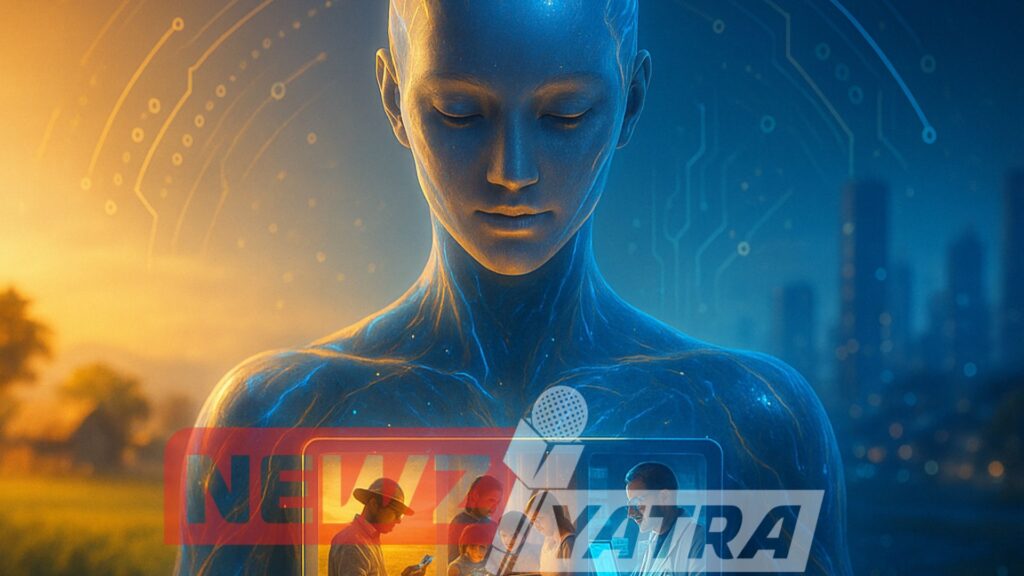
AI’s Indian Dream: A Future That Belongs to Everyone (Impact of AI on jobs in India)
As India races ahead into the AI age, one thing is clear: the true promise of artificial intelligence lies not just in smarter machines, but in a smarter, fairer society. From creating new jobs to transforming classrooms, from improving healthcare to simplifying daily life, AI has already begun reshaping India in powerful ways.
Yet this transformation must leave no one behind. It must understand not just our words, but our emotions, cultures, and hopes. It must bridge, not widen, the gap between rural and urban, rich and poor. It must empower every Indian — in every language, region, and walk of life. (Impact of AI on jobs in India)
Because the real success of AI in India won’t be measured by the most advanced technology, but by how many lives it touches, how many dreams it helps fulfill, and how many people it lifts along the way.
If we build AI with empathy, inclusivity, and a human-first vision, India’s AI journey won’t just be revolutionary — it will be uniquely, beautifully Indian. (Impact of AI on jobs in India)
Be a Part of India’s AI Future
Artificial Intelligence is already transforming the way we live, learn, and work in India. But its true potential will only be realized if we all get involved.
Whether you’re a student, teacher, developer, entrepreneur, or policymaker — your voice and action matter. (Impact of AI on jobs in India)
- If you’re a student, explore how AI can support your learning and creativity.
- If you’re an educator or parent, help others understand and use AI responsibly.
- If you’re building technology, focus on inclusive, ethical, and culturally aware AI tools.
- If you’re shaping policy, ensure access, equity, and digital literacy for every citizen.
AI in India should not just be innovative — it must also be inclusive, human-centered, and truly Indian.
Start today. Learn more. Share ideas. Build solutions. (Impact of AI on jobs in India)
Together, we can shape an AI future that empowers every Indian, in every region, and in every language.
The future isn’t something we wait for — it’s something we create. Let’s build it wisely and together.
How to Save $500 a Month Without Sacrificing Fun: Here’s How?
